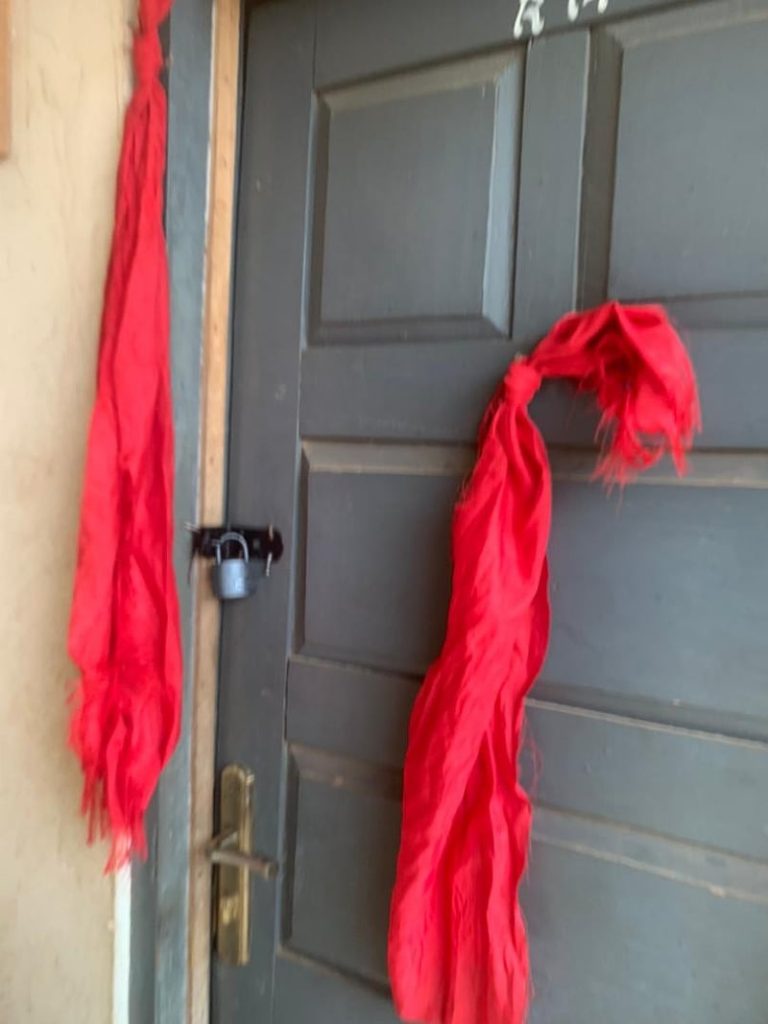The tranquil atmosphere of Hohoe, a municipality nestled within the Volta Region of Ghana, was recently shattered by a dramatic act of protest that brought the operations of the National Disaster Management Organisation (NADMO) to a grinding halt. Mr. Wodey Samuel, the Constituency Organizer for the National Democratic Congress (NDC), the dominant political party in the area, took the drastic step of forcibly locking the doors of the NADMO office, effectively shutting down the vital government facility. His actions stemmed from a deep-seated grievance over the appointment of the Municipal NADMO Director, a position he believed he was unfairly denied.
At the heart of the controversy lies Mr. Wodey’s claim that he was the rightful nominee for the directorship, having been initially considered for the role. He alleges that despite his qualifications and expectations, the position was ultimately given to his deputy, Mr. Raphael Kumaga, a decision he perceived as a blatant act of injustice. Frustrated by what he considered an unwarranted snub, Mr. Wodey resorted to direct action, padlocking the NADMO office and declaring his intention to keep it closed until the decision was reversed. His actions, though born of personal frustration, had far-reaching consequences, paralyzing NADMO operations and disrupting the delivery of crucial disaster management services to the community.
The sudden closure of the NADMO office sent shockwaves through the municipality, leaving staff stranded and unable to perform their duties. The disruption underscored the vital role NADMO plays in disaster preparedness and response, highlighting the potential repercussions of such abrupt closures. The Municipal Chief Executive, the highest-ranking government official in the area, remained conspicuously silent in the immediate aftermath of the incident, adding to the uncertainty and tension surrounding the situation. The absence of an official response from the municipal authorities further exacerbated the crisis, leaving the community in limbo and raising concerns about the potential for further escalation.
While Mr. Wodey’s actions garnered some support from those sympathetic to his claims of unfair treatment, his protest also drew sharp criticism from within his own party. Mr. Newton Darkey, the NDC Constituency Chairman for Hohoe, publicly condemned the move, characterizing it as unacceptable and misleading. He challenged Mr. Wodey’s version of events, offering a contrasting narrative that painted a different picture of the appointment process. According to Mr. Darkey, Mr. Wodey had initially declined the NADMO directorship when it was offered to him, preferring to pursue a different, more desirable position within the government. When his pursuit of this alternative position proved unsuccessful, Mr. Wodey, according to Mr. Darkey, attempted to reclaim the NADMO directorship, which had by then been filled by Mr. Kumaga.
Mr. Darkey’s account introduced a new layer of complexity to the unfolding drama, raising questions about the veracity of Mr. Wodey’s claims. The chairman firmly asserted the legitimacy of Mr. Kumaga’s appointment, emphasizing that the decision was final and irreversible. He appealed for calm and unity within the party, urging all members to respect the decision and uphold party discipline. His intervention aimed to quell the growing dissent and prevent the situation from escalating further, highlighting the importance of internal party cohesion in maintaining stability and order within the community.
The standoff between Mr. Wodey and the party leadership, played out against the backdrop of a disrupted local government, underscored the fragility of administrative processes and the potential for individual actions to derail essential services. The incident served as a stark reminder of the importance of clear communication, transparent decision-making, and adherence to established procedures in public administration. As the dispute continued to simmer, calls mounted for swift intervention from both party and municipal authorities to resolve the impasse and restore normalcy to the operations of the NADMO office. The incident highlighted the delicate balance between individual grievances and the broader needs of the community, emphasizing the need for effective conflict resolution mechanisms to address such disputes and prevent them from disrupting essential public services.


